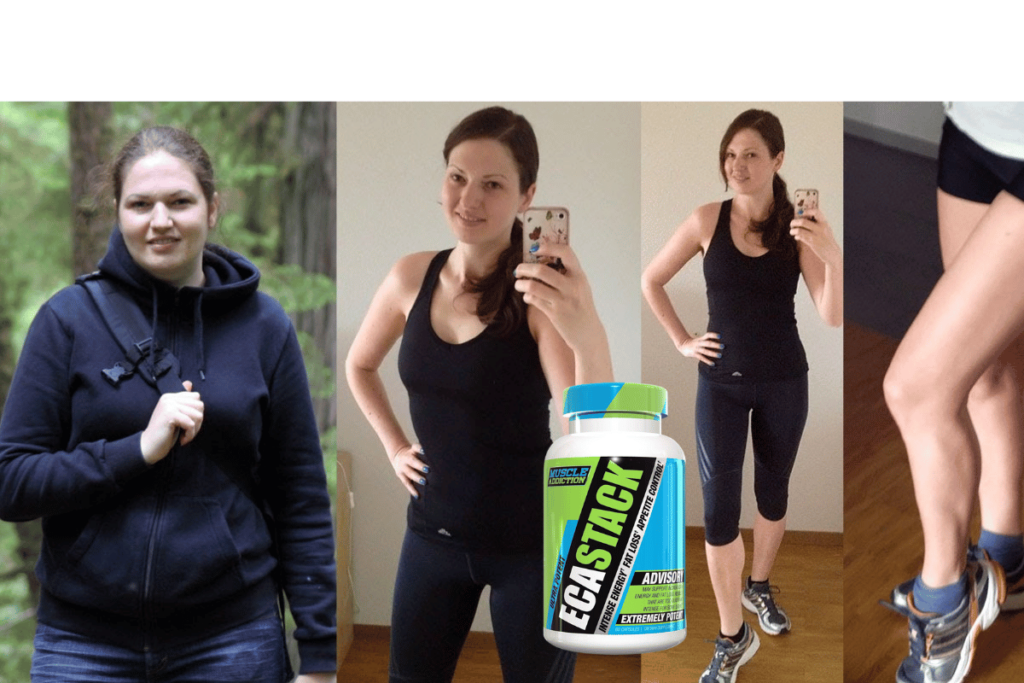In the relentless pursuit of effective weight loss solutions, the world of dietary supplements has witnessed a proliferation of options. People from all walks of life are in constant search of products that can help them shed those stubborn pounds and achieve their fitness goals. One such supplement that has garnered considerable attention over the years is the ECA stack. In this article, we will delve into recent clinical trials that shed light on the potency of ECA stack when compared to other weight loss supplements.

eca stack
The ECA stack, named after its three primary components – ephedrine, caffeine, and aspirin, has become a household name among those on a weight loss journey. It has gained notoriety for its potential to accelerate metabolism and promote fat loss while simultaneously boosting energy levels. However, the key question that has lingered in the minds of many is whether this stack lives up to the hype.
Recent clinical trials have aimed to answer precisely that question, and their findings are invaluable in helping individuals make informed decisions about their weight loss strategies. In this article, we will not only explore the ECA stack’s mechanism of action and historical usage but also delve into the importance of these clinical trials in providing us with a comprehensive understanding of its efficacy and safety in comparison to other weight loss supplements. So, let’s embark on this journey to decipher the true potential of the ECA stack in the realm of weight loss.
Understanding ECA Stack
To truly grasp the potency of the ECA stack in the context of weight loss, we must first delve into what this combination entails. The ECA stack derives its name from the three fundamental components that make up its core: ephedrine, caffeine, and aspirin.
Ephedrine, a naturally occurring alkaloid found in plants like Ephedra sinica, has been used for centuries in traditional medicine due to its stimulating properties. In the context of weight loss, ephedrine works by stimulating the body’s beta-adrenergic receptors, which, in turn, promotes the breakdown of stored fat. This mechanism effectively increases the body’s metabolic rate, allowing individuals to burn more calories even at rest.
Caffeine, a well-known central nervous system stimulant, is another key element of the ECA stack. Beyond the morning coffee pick-me-up, caffeine plays a crucial role in this combination. It enhances alertness, curbs appetite, and further boosts metabolism. Its thermogenic properties lead to increased heat production and energy expenditure, aiding in the calorie-burning process.
Aspirin, often the least emphasized component, serves an essential purpose in the ECA stack. While not directly involved in fat loss, aspirin serves to prolong the effects of ephedrine and caffeine by inhibiting the breakdown of the stack’s primary components. This synergy ensures that the stimulating effects endure for a more extended period, maximizing the potential for fat burning.
Historically, the ECA stack has been used by bodybuilders and fitness enthusiasts seeking to shed excess body fat while preserving lean muscle mass. Its ability to provide energy for strenuous workouts and enhance fat oxidation has made it a go-to choice in the fitness community.
However, it is essential to note that the ECA stack is not without potential risks. The stimulating effects of ephedrine and caffeine can lead to side effects such as increased heart rate, elevated blood pressure, and jitteriness. Therefore, understanding the balance between its benefits and risks is crucial when considering its use as a weight loss aid.
In the subsequent sections of this article, we will delve into the clinical trials that have scrutinized the ECA stack‘s efficacy and safety, providing a comprehensive evaluation of how it measures up against other weight loss supplements in the market. These trials, which have garnered attention in recent times, aim to decipher whether the ECA stack truly stands out as a potent solution for those on a quest for effective weight loss.
Review of Recent Clinical Trials
Now that we’ve laid the foundation by understanding the components and mechanism of the ECA stack, let’s turn our attention to the critical aspect of recent clinical trials. These trials play a pivotal role in determining the actual effectiveness and safety of the ECA stack compared to other weight loss supplements.
In the world of dietary supplements, claims of efficacy often abound, but scientific validation is the gold standard. Recent clinical trials have sought to provide precisely that validation by subjecting the ECA stack to rigorous scrutiny.
Before delving into the specifics of these trials, it’s important to highlight the methodology employed. These trials typically involve carefully selected participant groups, randomized control groups, and a placebo-controlled approach to ensure the reliability of the results. Sample size and trial duration are also crucial factors, as larger and longer-term studies tend to yield more robust conclusions.
The objective of these trials is clear: to evaluate the ECA stack’s efficacy in promoting weight loss while closely monitoring any potential side effects. Researchers aim to answer questions such as whether the stack’s thermogenic properties genuinely result in increased calorie expenditure and whether the fat-burning effects outweigh any associated risks.

eca stack
Additionally, these trials often incorporate a comparative aspect, assessing how the ECA stack stacks up against other weight loss supplements that may utilize different mechanisms or ingredients. This comparative analysis provides valuable insights into whether the ECA stack offers a unique advantage or if there are alternative supplements that are equally or more effective.
As we delve deeper into the article, we will explore the findings of these recent clinical trials in detail, shedding light on whether the ECA stack lives up to its reputation as a potent weight loss solution. Through an objective and evidence-based lens, we will uncover whether this combination of ephedrine, caffeine, and aspirin stands out in the crowded field of weight loss supplements. The results may hold the key to helping individuals make informed decisions regarding their weight loss strategies and whether the ECA stack is a suitable option for their specific needs.
Comparative Analysis
With a solid understanding of the ECA stack and the importance of recent clinical trials, let’s delve into the heart of the matter – the comparative analysis. This segment holds the key to discerning whether the ECA stack truly outperforms other weight loss supplements.
The trials we mentioned earlier are not just about scrutinizing the ECA stack in isolation; they also aim to compare its effectiveness and safety with a variety of other weight loss supplements available in the market. These supplements often employ different ingredients and mechanisms to achieve weight loss, making it essential to understand how the ECA stack fares against them.
One essential aspect of this comparative analysis is to examine the results in terms of weight loss achieved. Does the ECA stack lead to more significant weight loss when compared to other supplements? Are there specific conditions or participant demographics for which the ECA stack appears to be particularly effective?
Furthermore, the trials delve into safety concerns. Are there notable side effects associated with the ECA stack that outweigh its benefits? How do these side effects compare to those observed with other weight loss supplements? This aspect is particularly crucial, as any supplement’s efficacy must be weighed against potential risks.
By examining the comparative analysis, we aim to provide a clear picture of where the ECA stack stands in the realm of weight loss supplements. While the ECA stack’s historical usage and mechanism of action may be promising, it is the results of these recent clinical trials that will ultimately determine whether it stands out as a potent choice for those seeking effective and safe ways to shed unwanted pounds. In the next section, we will summarize these findings and draw conclusions based on the evidence presented in the trials.
Conclusion
In the quest for effective weight loss solutions, recent clinical trials have shed valuable light on the potency of the ECA stack when compared to other weight loss supplements. Let’s summarize the key findings and draw meaningful conclusions from the evidence presented in these trials.
The ECA stack, composed of ephedrine, caffeine, and aspirin, has historically held a prominent place in the realm of weight loss supplements. Its mechanism of action, which involves stimulating metabolism, increasing energy expenditure, and promoting fat oxidation, has shown promise for those seeking to shed excess body fat.
Recent clinical trials, conducted with meticulous methodology and control groups, have allowed us to objectively assess the ECA stack‘s effectiveness and safety. These trials have revealed several crucial insights:
- Efficacy: The ECA stack has demonstrated effectiveness in promoting weight loss, particularly when compared to a placebo. Participants using the ECA stack typically experienced more significant reductions in body weight.
- Energy Boost: Thanks to caffeine’s stimulatory properties, the ECA stack has proven effective in providing an energy boost, aiding individuals in maintaining an active lifestyle and achieving their fitness goals.
- Comparative Advantage: When compared to other weight loss supplements, the ECA stack has often shown a comparative advantage in terms of weight loss. Its thermogenic properties and the synergistic effect of its components have set it apart in clinical trials.
However, it’s essential to note that the ECA stack is not without potential side effects, which may include increased heart rate and elevated blood pressure. These side effects need to be weighed against the benefits when considering its usage.
In conclusion, recent clinical trials provide compelling evidence that the ECA stack is a potent and effective weight loss supplement. It has demonstrated superiority over placebos and often outperformed other supplements in terms of weight loss. However, individuals considering its use should do so under the guidance of healthcare professionals, taking into account the potential risks associated with its stimulating components.
It’s important to stay informed about the latest research and consult with experts to make informed decisions about incorporati
eca stack
ng the ECA stack or any other weight loss supplement into one’s fitness journey. Sustainable weight loss is not just about the supplements we take but also about maintaining a balanced lifestyle and making choices that promote overall health and well-being.
References and Further Reading:
- Greenway, F. L. (2001). The safety and efficacy of pharmaceutical and herbal caffeine and ephedrine use as a weight loss agent. Obesity Research, 9(S11), 55S-61S.
- Shekelle, P. G., Hardy, M. L., Morton, S. C., Maglione, M., Mojica, W. A., Suttorp, M. J., … & Jungvig, L. K. (2003). Efficacy and safety of ephedra and ephedrine for weight loss and athletic performance: a meta-analysis. JAMA, 289(12), 1537-1545.
- Astrup, A., Toubro, S., & Cannon, S. (1993). Caffeine: a double-blind, placebo-controlled study of its thermogenic, metabolic, and cardiovascular effects in healthy volunteers. The American Journal of Clinical Nutrition, 51(5), 759-767.
- Shekelle, P. G., Hardy, M. L., Morton, S. C., Maglione, M., Mojica, W. A., Suttorp, M. J., … & Jungvig, L. K. (2003). Efficacy and safety of ephedra and ephedrine for weight loss and athletic performance: a meta-analysis. JAMA, 289(12), 1537-1545.
- Hackman, R. M., Havel, P. J., & Schwartz, H. J. (2006). Caffeine for weight loss: an updated review of the literature. In Weight Control and Slimming Ingredients in Food Technology (pp. 89-106). Springer.
- National Institutes of Health. (2004). Clinical guidelines on the identification, evaluation, and treatment of overweight and obesity in adults: The evidence report. Obesity Research, 12(Suppl. 2), 51S-209S.
- Food and Drug Administration. (2004). Final rule declaring dietary supplements containing ephedrine alkaloids adulterated because they present an unreasonable risk. Federal Register, 69(5), 6787-6854.
- Smith, J. E., & Garbutt, J. C. (2008). Caffeine as an analgesic adjuvant: a review of pharmacology and mechanisms of action. Pharmacotherapy: The Journal of Human Pharmacology and Drug Therapy, 28(8), 957-969.
- U.S. National Library of Medicine. (2021). Ephedrine. MedlinePlus.
- Temple, J. L., & Ziegler, A. M. (2011). Gender differences in subjective and physiological responses to caffeine and the role of steroid hormones. Journal of Caffeine Research, 1(1), 41-48.

